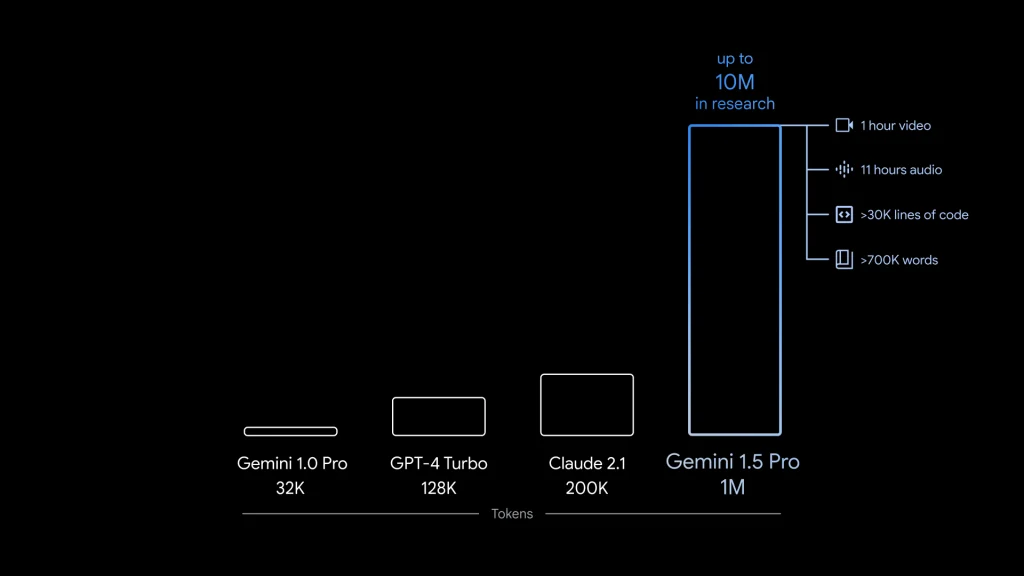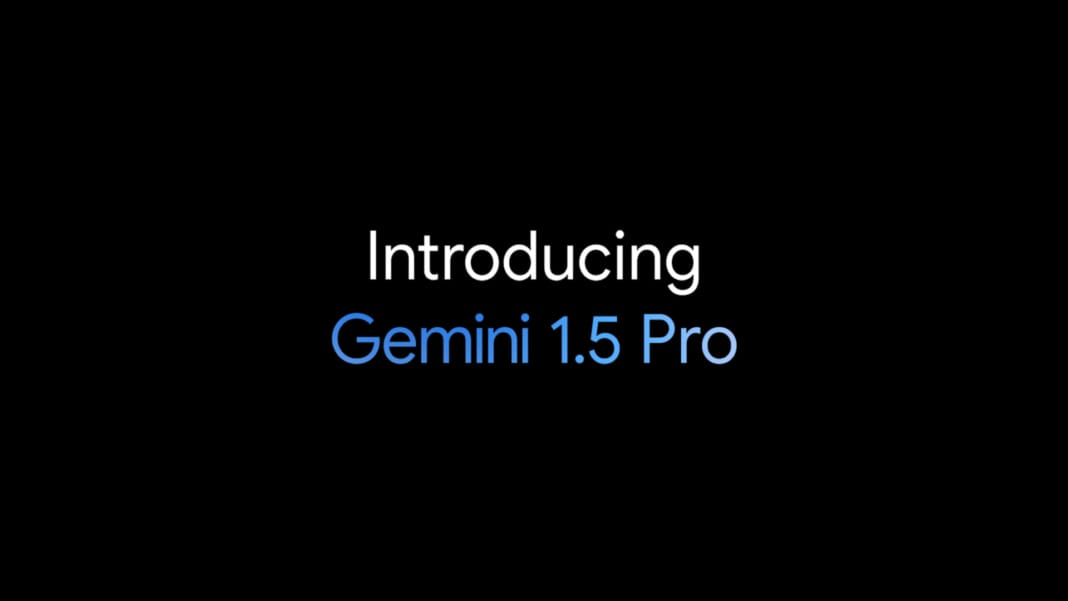The tech world has been buzzing since Google’s initial release of Gemini, an advanced AI model that promised to reshape the landscape of artificial intelligence. Now, the tech giant is set to surpass its benchmark with the launch of Gemini 1.5. This new version isn’t just an update; it represents a significant leap in AI capabilities. Under the leadership of CEO Sundar Pichai, Google has big plans for Gemini. They see it not just as a tool for businesses but also as a versatile personal assistant, bridging the gap between professional and personal AI applications. Initially available to developers and business users, Gemini 1.5 is poised for a widespread consumer release, signalling a new era in AI technology.
Gemini 1.5’s launch clearly indicates Google’s commitment to leading the AI industry. It’s not just another step in the evolution of artificial intelligence; it’s a giant leap. The anticipation for its consumer version is high, as Gemini 1.5 promises to bring advanced AI capabilities into the hands of everyday users. With its broad spectrum of applications, from business analytics to personal assistance, Gemini 1.5 is set to become an integral part of the professional and personal digital experience.
Enhanced capabilities and efficiency
In the realm of performance and efficiency, Gemini 1.5 has set new standards. Its general-purpose model, Gemini 1.5 Pro, now matches the capabilities of the high-end Gemini Ultra, which was a recent and notable introduction to the Gemini family. This achievement is particularly significant, as Gemini 1.5 Pro has excelled in 87% of benchmark tests, outperforming its predecessor, Gemini 1.0 Pro. This leap in performance is attributed to adopting a cutting-edge technique known as “Mixture of Experts” (MoE). This method allows the AI model to selectively process parts of a query, enhancing speed for the user and reducing the operational load for Google.
The efficiency of Gemini 1.5 doesn’t just lie in its processing speed. By employing the MoE technique, Google has made AI more resource-effective. This benefits users with faster responses and aligns with broader goals of sustainable and efficient computing. The implications are vast, suggesting a future where powerful AI can be deployed more widely without the traditional constraints of high computational costs.

Revolutionary context window
The context window of Gemini 1.5 is nothing short of revolutionary. It can process up to 1 million tokens, dwarfing the capabilities of OpenAI’s GPT-4 and the current Gemini Pro. This expansion means that Gemini 1.5 can handle queries of unprecedented size and complexity, analyzing vast amounts of information in one go. To put this in perspective, Sundar Pichai likens it to simultaneously processing 10 or 11 hours of video or tens of thousands of lines of code. Currently, Google’s researchers are pushing the envelope even further, experimenting with a context window that could handle up to 10 million tokens. This kind of capacity would enable the AI to process content equivalent to an entire book series, like ‘Game of Thrones’, in a single query.
The potential applications of such a large context window are immense. For instance, it allows for more nuanced and comprehensive analyses of complex data sets. This is particularly relevant in fields like research and development, where the ability to process and understand large volumes of data can lead to groundbreaking discoveries. Moreover, in the realm of entertainment and media, such capabilities could enable new forms of content creation and analysis, like scriptwriting or film editing, where understanding the context and narrative flow is crucial.
Applications for business and consumers
Gemini 1.5’s expanded context window is set to revolutionise how businesses interact with AI. It allows for more detailed and context-rich queries, which can be tailored to specific business needs. Sundar Pichai envisions various applications, from filmmakers uploading entire movies for predictive analysis of reviews to companies scouring vast financial records for insights. This level of contextual understanding could transform sectors like finance, entertainment, and even healthcare, where the ability to process and analyze large datasets is crucial.
For consumers, the implications are equally exciting. The upcoming consumer version of Gemini 1.5, while offering a smaller 128,000-token context window, will still represent a significant advancement in personal AI applications. Users could receive more nuanced and comprehensive responses to their queries, whether researching a topic in-depth, seeking creative inspiration, or simply trying to organise their daily schedule. The additional cost for accessing the full 1 million token window may well be justified for those requiring advanced capabilities, like content creators or researchers.
The competitive landscape of AI
In the race to dominate the AI industry, Google’s release of Gemini 1.5 marks a crucial milestone. The competition is fierce, with competitors like OpenAI continuously innovating, as evidenced by their recent introduction of ‘memory’ for ChatGPT. However, Gemini’s seamless integration into Google’s vast ecosystem gives it a unique advantage. The model’s capabilities, coupled with Google’s extensive reach, could make it the go-to AI for a wide range of users.
However, as Pichai notes, the specifics of these AI models, like smartphone processors, will eventually become less important to the average user. As the technology matures and becomes more integrated into our daily lives, the focus will shift from the capabilities of the AI to the experiences it enables. For now, though, these advancements are crucial, signalling a transformative period in the AI landscape.





